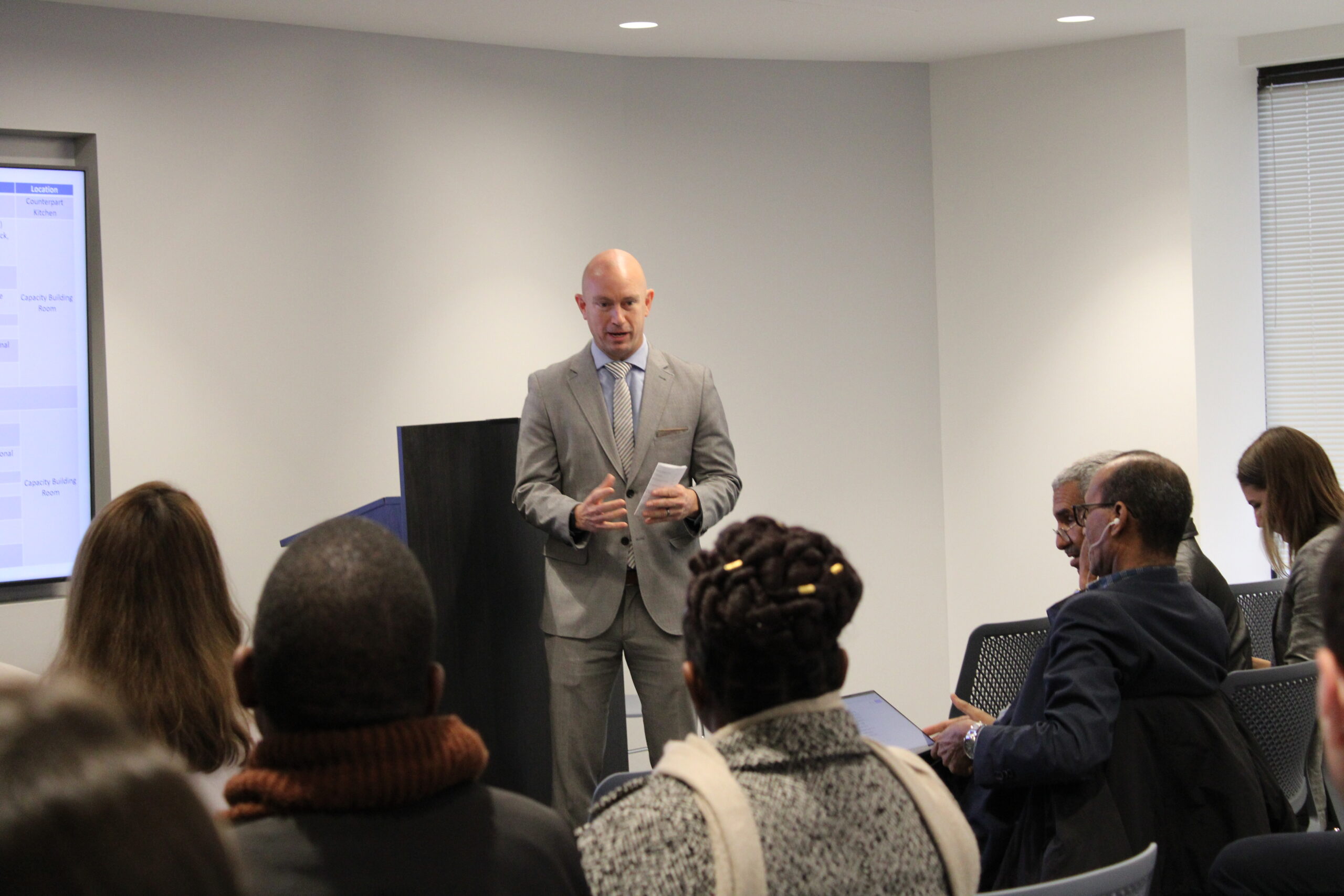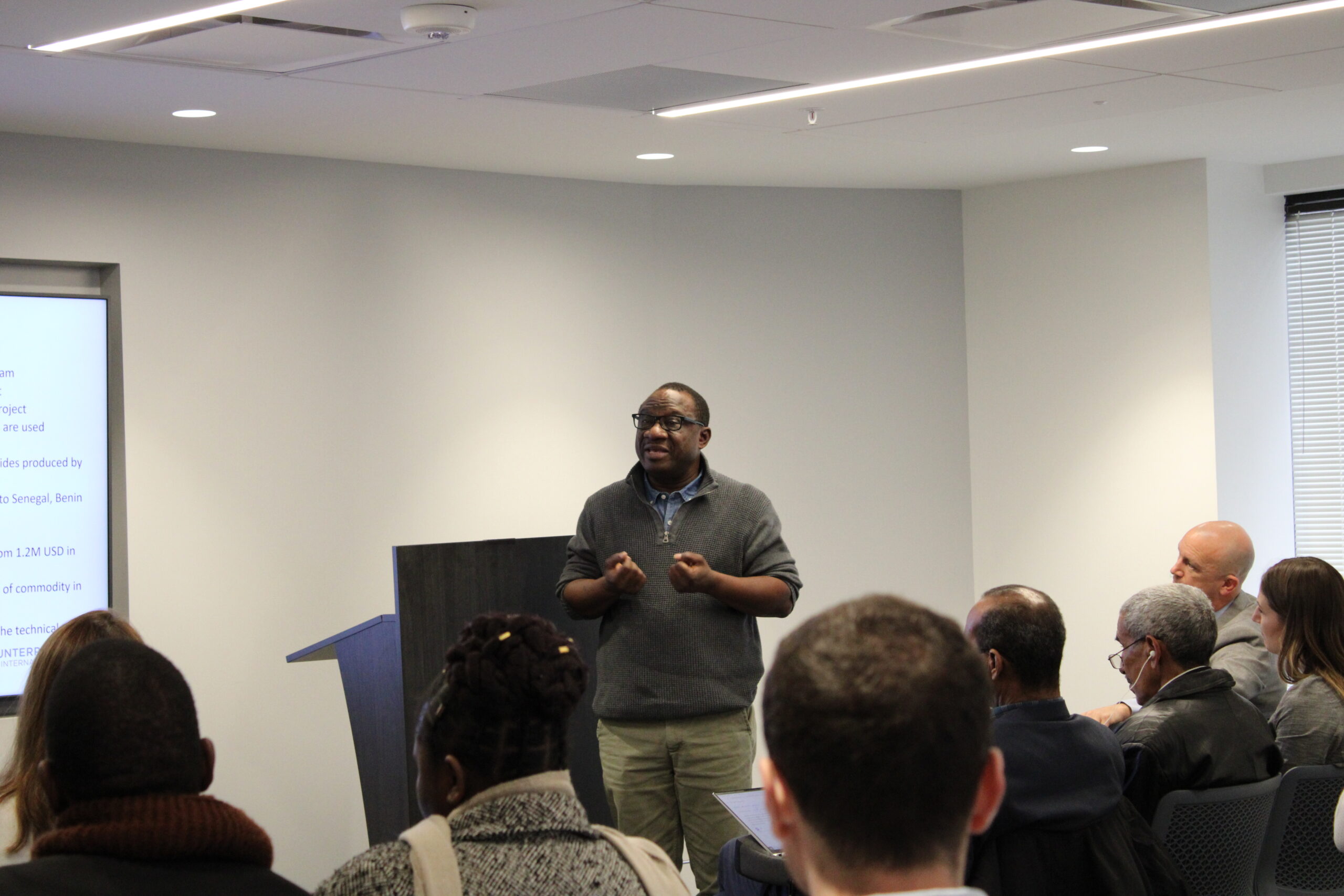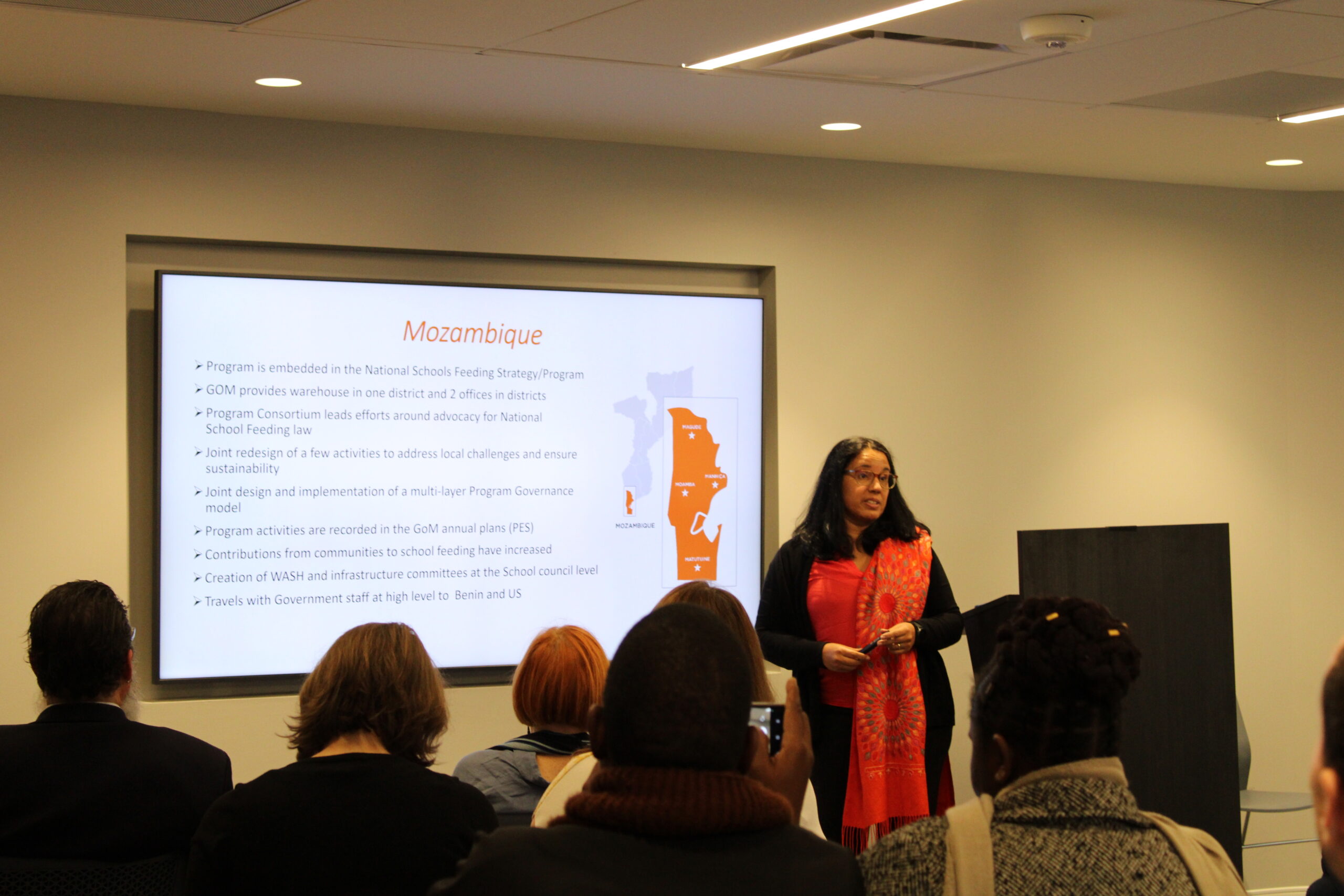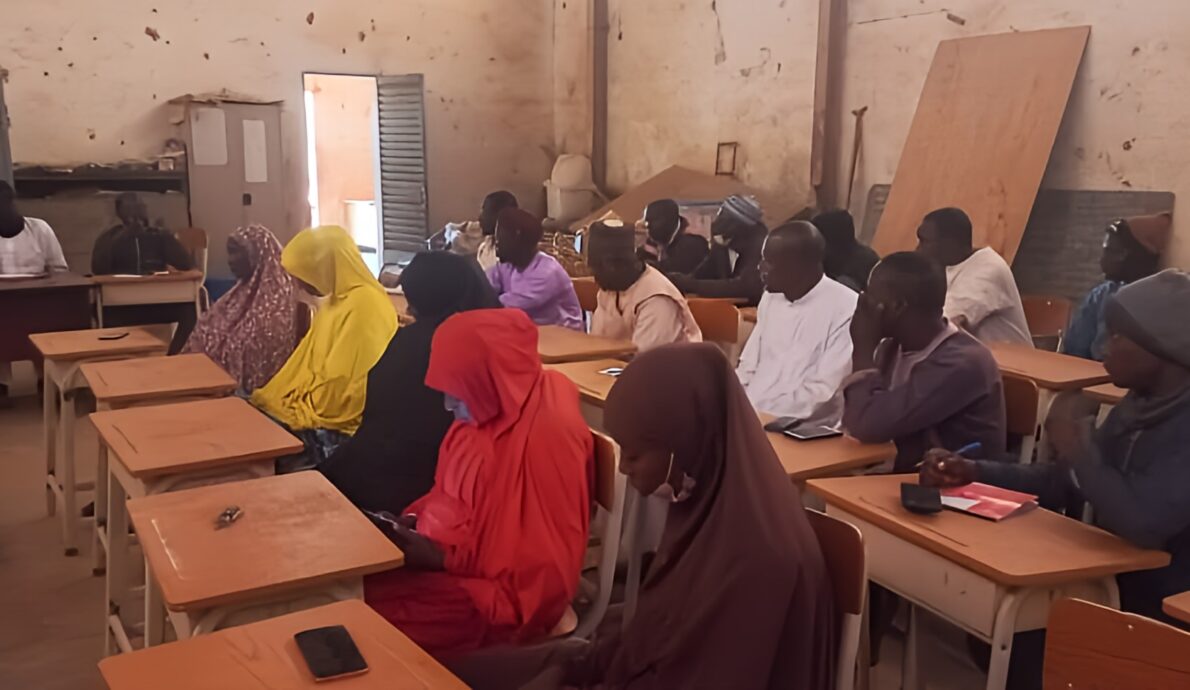
Shane Danielson, senior director of the International Food Assistance Division of the USDA, gave opening remarks at the McGovern-Dole Learning Event.
As USDA McGovern-Dole Food for Education and Child Nutrition implementing partners gathered in Washington, D.C. for the annual Comparative International Education Society conference in February, Counterpart brought together government officials and partner organizations to create a space for inclusive dialogue and knowledge sharing.
The hybrid evidence-based learning event featured presentations from nine McGovern-Dole implementing partners, including organizations such as Counterpart, World Food Programme, CARE, Save the Children, Nascent Solutions, CRS, Global Communities, and World Vision. USDA representatives also attended the event.
“The wide array of presentations today showcases the value of evidence-based learning and the complexity of McGovern-Dole,” said Jason Compy, director of Monitoring, Evaluation, and Strategic Planning at USDA Foreign Agricultural Service. “Sharing best practices leads to innovation, greater efficiency, and ultimately, more children fed.”
The session gave organizations the ability to share lessons learned and opened the door for future collaboration.
“When we look at the challenges of food security and malnutrition, we have to think of unlikely partnerships,” said Counterpart President and CEO Ann Hudock in her opening remarks.

Counterpart Chief of Party of Mauritania Desire Yameogo shares insights from the Mauritania McGovern-Dole program.
The McGovern-Dole program, funded by the USDA’s Foreign Agricultural Service, has provided 5.5 billion daily school meals to children around the world. Shane Danielson, senior director of the International Food Assistance Division of the USDA, said the learning event was important in bringing partners together to share knowledge and experiences.
Counterpart’s chiefs of party for McGovern-Dole projects in Senegal, Mauritania, and Mozambique each presented on the theme of Counterpart’s approach to government engagement. Senegal Chief of Party Kathryn Lane outlined our foundations for sustainability, including government as a strategic partner, building government staff capacity, and building trust, support, and respect with government representatives.
In Senegal, for example, Counterpart is working closely with the government to train them on the school feeding program so that one day they can fully take over the program. Our team has trained government staff to maintain a database on school feeding and started a pre-natal vitamin program for pregnant women that the government is starting to implement.
Besides sharing successes, the event also provided a platform for partners to discuss their challenges. Katia Santos Dias, Chief of Party of Counterpart’s McGovern-Dole project in Mozambique, found this particularly useful for finding ways to improve.
“Across the McGovern-Dole portfolio, some of our challenges seem to be universal,” she said. “We are dealing with the same challenges but what’s also very important is that depending on the context, there seems to be a lot of models that have been successful, and it would be great to learn from those and understand which ones could be adapted to our context,” she said.
The presence of staff from the program sites who were in town for the CIES conference was especially important for the discussions, because they are the ones who have the best on-the-ground experience.
“What I really liked about the meeting was just the information exchange,” Lane said. “There’s a lot of experience in the room. As a learning event, it was very rich.”
Counterpart hopes this will be the first of many learning events for USDA and McGovern-Dole implementing partners.





